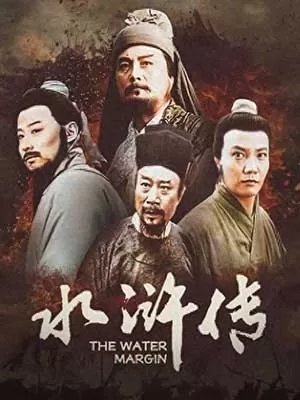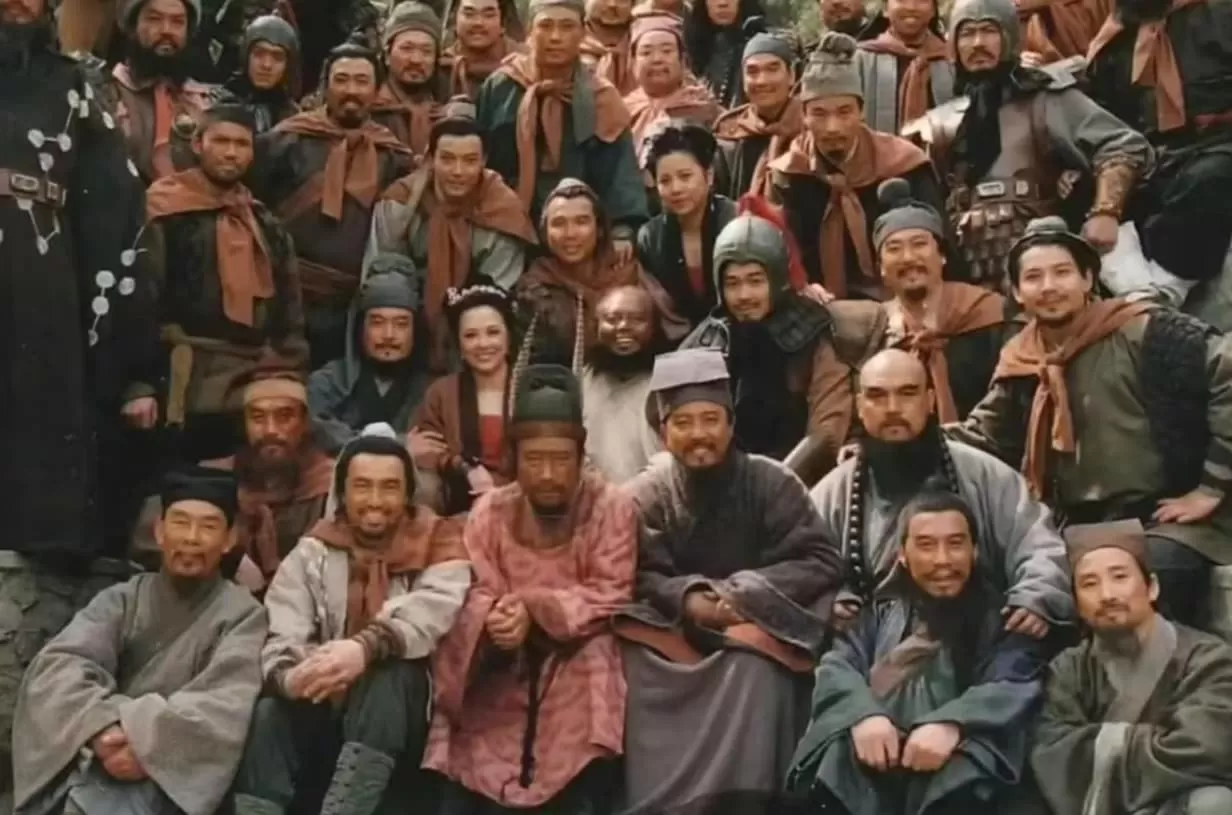
The Water Margin "is a long novel written by Shi Nai'an in the late Yuan and early Ming dynasties (most of the existing editions are signed by Shi Nai'an or Luo Guanzhong, or both). It is the first episodic novel written in vernacular Chinese in Chinese history.
The whole book depicts the grand story of 108 heroes from Liangshan, led by Song Jiang, who eliminate corrupt officials and thieves, strengthen Liangshan by water, accept the surrender of the Song Dynasty, and fight for the Song Dynasty after accepting the surrender.
Water Margin "is one of the Four Great Classical Novels of China. After its publication, it has had a huge impact on society and has become a model for Chinese novel creation in later generations. The Water Margin "is the earliest episodic novel written in vernacular Chinese in Chinese history, widely circulated and popular; It is also one of the epic works in Chinese language and literature, which has a profound influence on narrative literature in China and even East Asia.
The book "Water Margin" was based on the history of the Song Jiang Uprising in the late Northern Song Dynasty. According to the biography of Hou Meng in the Eastern Capital, "Thirty six people from the Yangtze River rampaged across the river, and tens of thousands of officials from the Eastern Capital army dared not resist
According to the "Annals of Emperor Huizong" in the "History of the Song Dynasty": "Huainan stole Song River and other forces from Huaiyang Army, sent generals to capture them, and also invaded Jingdong and Hebei, entering the border of Chu and Haizhou. Zhang Shuye, the governor, was ordered to surrender." The "Biography of Zhang Shuye" in the "History of the Song Dynasty": "The Song River started from Heshuo and turned around ten counties, but the official army dared not attack its front. When it was announced that it was approaching, Shuye's envoys followed the direction of the enemy, and the thieves approached the coast of the sea, robbing more than ten giant boats and carrying them captive. Therefore, they recruited a thousand dead soldiers, set up a siege near the city, and launched a battle of light troops to lure them away from the sea. They first hid their strong soldiers by the sea and waited for The soldiers joined forces and set fire to their boats, causing no fighting spirit among the bandits. They ambushed and captured their accomplices, and Jiang surrendered. In addition, there are similar records in Li Yi's" Outline of the Ten Dynasties, "Chen Jun's" Nine Dynasties Annals and Preparations, "and Xu Mengshen's" Compilation of the Three Dynasties North Alliance. There are also records that Song Jiang participated in the Battle of Fangla after surrendering. From these records, it can be known that this rebel army had a small number (but definitely more than 36 people), but had strong combat effectiveness and had a significant influence among the masses, posing a certain threat to the Song Dynasty. The period of the Song Jiang and other uprisings was approximately from the first year of Xuanhe (1119) to the third year of Xuanhe (1121), spanning over three years.
The storytelling skills flourished in the Song Dynasty, and the stories of 36 people including Song Jiang, which were widely circulated among the people, were quickly collected by storytellers as materials for creating storybooks. In the Southern Song Dynasty, Luo Ye's "Drunken Weng Talks" recorded novel titles such as "Green Faced Beast," "Flower Monk," and "Warrior," which should be the stories of Yang Zhi, Lu Zhishen, and Wu Song. In addition, "Stone Sun Li" may also be a Water Margin story.
This is the earliest recorded version of the Water Margin. At the end of the Southern Song Dynasty, there was Gong Kai's "Preface to the Praise and Integration of the Thirty Six People of Songjiang", which stated: "The affairs of Songjiang are seen in the streets and alleys." It also mentioned that before Gong Kai, there was a painting academy waiting for an edict from Li Song, who had painted portraits of Songjiang and others. But Gong Kai's likes did not mention the content of the story. The earliest work that can be seen today that tells the story of Water Margin is "The Legacy of Xuanhe in the Great Song Dynasty" (see "The Legacy of Xuanhe"), which is either from the Yuan Dynasty or an old version from the Song Dynasty with additional gains during the Yuan Dynasty. Some researchers believe that it is the foundation for storytellers.
The summary of the Water Margin story it chronicles starts with Yang Zhi selling a knife to kill someone, goes through the process of cleverly choosing the birthdate, Song Jiang angrily killing Yan Poxi, and the Nine Heavens Xuannu imparting the Book of Heaven, until surrendering to the court and suppressing the Fang La Uprising. The sequence is basically consistent with the later "Water Margin". At this time, the Water Margin story had evolved from many scattered and independent individual pieces to a systematic and coherent whole. During the Yuan Dynasty, miscellaneous dramas were prevalent, with a large number of Water Margin dramas appearing. The names of the characters in Yuan miscellaneous dramas and the Water Margin recorded in "The Song Dynasty Xuanhe Legacy" were roughly the same, but the gathering places were different. The miscellaneous dramas talked about Liangshan Bo, while "Legacy" talked about Taihang Mountain; In the drama, there is already a saying of "one hundred and eight leaders", while "The Last Things" only mentions the nicknames and names of 36 generals; Li Kui is listed as the 14th leader and Yan Qing as the 28th leader in "The Last Things". In the drama, Li Kui is listed as the 13th leader and Yan Qing as the 15th leader.
All of these show that before the book "Water Margin" was written, there were similarities and differences in the details of the content of the Water Margin stories in circulation. This may also be related to spreading in different regions. Shi Nai'an collected these stories that have been passed down in different regions, and after selection, processing, and re creation, he wrote 'Water Margin'. The story of "Water Margin" originated during the Xuanhe period of the Northern Song Dynasty and has become the main theme of folk oral literature since the Southern Song Dynasty. The storytelling books compiled by storytellers that have been passed down include "Green faced Beast," "Flower Monk," "Martial Artist," and so on.

Provides The Most Comprehensive English Versions Of Chinese Classical Novels And Classic Books Online Reading.
Copyright © 2025 Chinese-Novels.com All Rights Reserved
